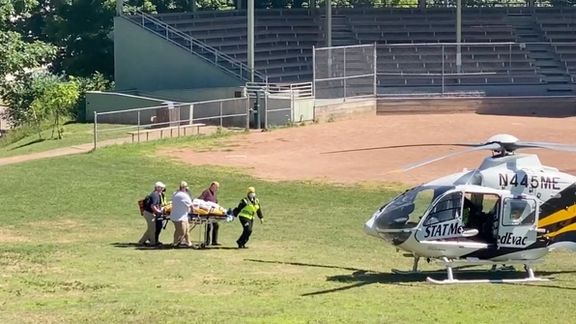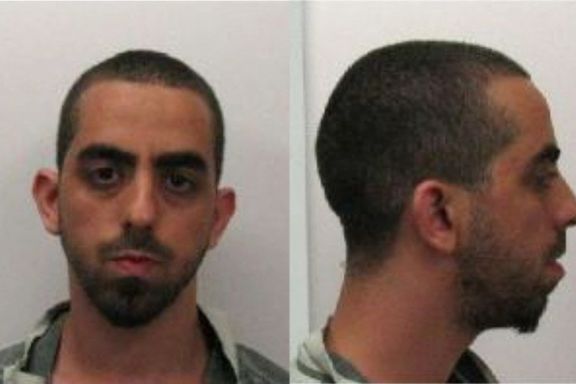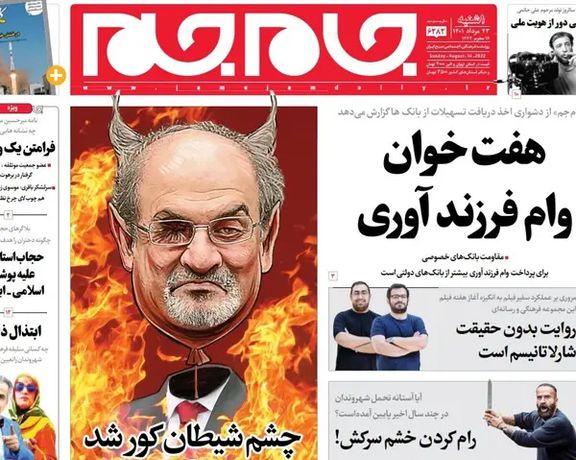Expose Rushdie Attacker’s Ties With Iran, Activists Urge US

More than 250 Iranian public figures say the United States must release details of the alleged ties between Salman Rushdie’s attacker and the Islamic Republic.

More than 250 Iranian public figures say the United States must release details of the alleged ties between Salman Rushdie’s attacker and the Islamic Republic.
“We urge democratic countries to recall their ambassadors from Iran in defense of freedom of speech and universal human rights principles and limit the presence of this terrorist-Islamic regime in international organizations as much as possible,” 260 Iranian activists, literally figures, artists, and journalists living outside Iran said in a statementTuesday. They also urged the US government to release further details of the attack on Rushdie and the attacker’s connections with the Lebanese Hezbollah and the Islamic Republic.
US Secretary of State Antony Blinken in a statement on Sunday said Iranian state institutions have incited violence against Rushdie for generations and pointed out that Iran’s state affiliated media gloated over the attempt on his life. “This is despicable.”
Iran’s foreign ministry spokesman on Monday denied any links with the 24-year-old Hadi Matar who stabbed the 75-year-old Indian born author of Satanic Verses in New York on August 12.

Nasser Kanaani, repeated Iran's position that Rushdie had insulted Prophet Muhammed and is guilty. "Salman Rushdie exposed himself to popular outrage by insulting Islamic sanctities and crossing the red lines of 1.5 billion Muslims," Kanaani said.
Vice News reported on Sunday that according to European and Middle Eastern intelligence sources, Matar had been in contact with elements of Iran’s Revolutionary Guards (IRGC). Matar was charged with attempted murder on Saturday.
Vice News quoted a NATO counterterrorism official from Europe as saying that the attack on Rushdie had all hallmarks of a “guided attack”, meaning that a spy agency or a terrorist network had nudged Matar to kill Rushdie without getting directly involved in the operation itself.

Yahoo news on Tuesday also claimed that it had obtained a New York Police Department intelligence assessment according to which Matar is believed to have sympathized with the IRGC.
A preliminary investigation by police had suggested Matar was sympathetic to the IRGC as his Facebook account featured pictures of Qasem Soleimani, the IRGC general killed in a US drone strike in 2020, and Iran’s Supreme Leader Ali Khamenei.
Iran’s hardline media have openly welcomed the act, praised the assailant and called it “divine vengeance”. The flagship ultraconservative paper Kayhan, published under Khamenei’s supervision, flashed “a thousand bravos” to Matar.
“The western governments’ forbearance of the Islamic Republic’s terrorist activities and hatemongering paved the way for the recent attack on Salman Rushdie in the United States,” the 260 signatories of the statement entitled “Our Hearts Beat with His” said.
Human rights activist Ladan Boroumand, Iranian-French sociologist Saeed Payvandi, Iranian-American writer and professor of English literature Azar Nafisi, Iranian-French photojournalist Reza Deghati, human rights lawyerSaeed Dehghan, and visual artist Barbad Golshiri are among the signatories.
“It is now time to accept the reality that the Islamic Republic only represents a corrupt and criminal group and is the main enemy of the Iranian people and an enemy of peace and security and the global community,” they wrote.
The banned Iranian Writers' Association said in an earlier statement in Tehran that the death sentence issued by then-Supreme Leader Ruhollah Khomeini in 1989 against Rushdie for apostasy limited freedom of thought, expression, publication, and the right to free discussion of Rushdie’s book, Satanic Verses. “Undoubtedly, the attack on Salman Rushdie is clear evidence of assault on freedom of expression.”